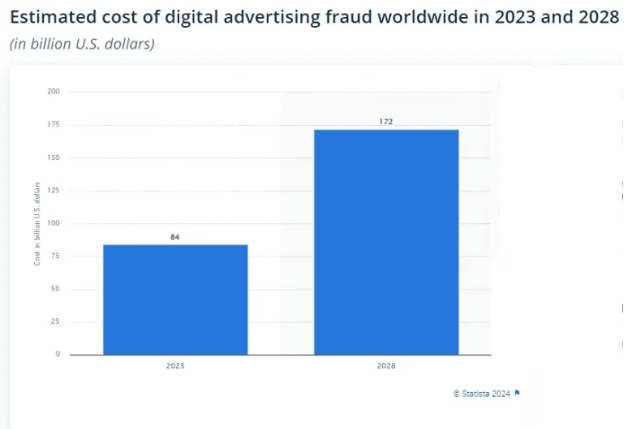Concrete Story- How Blockchain Addresses Real Estate Challenges

Introduction
Blockchain technology’s disruptive power has influenced every sector, and the real estate is no exception! As this revolutionary technology goes beyond cryptocurrencies, real estate sector has started leveraging blockchain app development services for high value transactions.
The advent of blockchain-based smart contracts and tokenization have made it possible to tokenize real estate assets and trade them like cryptocurrencies. This post talks about the role of blockchain app development in transforming real estate sector. Let’s start with the overview of blockchain technology and challenges of the real estate processes.
Overview of Blockchain Technology
Blockchain, as a digital ledger or database, is useful for recording transactions in a secure and transparent way. Unlike traditional databases, blockchain operates through a network of computers that validate and store data securely. This technology can make the data storage trustworthy and resilient with high transparency.
Decentralization (no single entity controls the system) and immutability (records cannot be changed after adding) are two key built-in characteristics of blockchain technology. Blockchain app development can leverage these intricate features to offer high transparency and resilience for valuable data.
Real estate sector can utilize another important feature smart contracts. These are self-executing agreements stored into the blockchain that eliminate intermediaries and enforce terms automatically. Blockchain development services can build applications for sectors like real estate where efficiency and security are of utmost importance.
Key Challenges in Traditional Real Estate Processes
The real estate industry is thriving at a rapid pace, however, traditional processes can bring some challenges. For example, the real estate sector consists of many stakeholders including multiple organization, agents, and prospects. As prospect search a property for buying, leasing, or putting for sale, inefficient data sharing and a lack of automation can cause issues.
Moreover, the real estate industry has inherent nature of lacking trust and transparency in data and record management. It is due to manual paperwork, title disputes, and intermediaries. Therefore, a robust solution for recording, monitoring, and transferring data in a secure way is essential. Here, a reputed blockchain development company lends a helping hand.
Let’s dig in the role of blockchain in transforming real estate sector.
How Blockchain is Transforming Real Estate
Blockchain technology is the next big thing in real estate industry. As per the research, the global market of blockchain in real estate may reach USD 1.74 billion by 2028. Realtors and real estate agents have found that blockchain-based smart contracts can be a game-changer for the industry.

Moreover, blockchain technology can play a vital role in curbing digital advertising fraud in the thriving real estate sector. As per the Statista report, estimated cost of this fraud can reach USD 172 billion by the year 2028. The real estate industry, due to its high-value transactions, remains highly vulnerable for this fraud.
Here are some popular ways, this technology can transform the real estate-
High-Value Transactions and Smart Contracts
The real estate sector involves high-value property transactions. Blockchain technology makes it secure and seamless by enabling payments using cryptocurrencies. This can eliminate intermediaries and banks. Another advanced concept of blockchain is smart contracts, which can further streamline property transactions.
Smart contracts can automate purchase agreements, escrow services, and rental transactions. This can increase transaction speed and security while reducing costs.
Property Titles and Ownership Records
Issues related to titles and ownership rights are highly prevalent in the real estate sector. Globally, realtors can leverage the advantage of immutability of Blockchain technology to deal with these issues. Immutable ledger can keep every ownership record secure, tamper-proof, and timestamped. This can reduce the instances of title fraud and make the property ownership history easy for review or verifications.
Due Diligence and Verification of Owners
Due diligence and owner verification are essential in the real estate sector. The due diligence is a detailed investigation and evaluation done before finalizing a transaction. Whether people are buying or selling properties, the due diligence can help them understand the condition of property.
People can make informed decisions based on the property’s value, status, and verification of owners.
Digital Tokens for Real Estate Properties
Tokenization is one of the most beneficial capabilities of blockchain. It enables sellers to convert their assets into digital tokens. These tokens represent their share of ownership in the property and investors can own that specific portion without purchasing the entire asset.
Digital tokens can make it easy for realtors to sell a part of their properties in a secure and seamless way.
DeFi (Decentralized Finance) for Real Estate
This is a fintech approach and gaining ground in the real estate industry. DeFi includes a range of financial services and products based on blockchain. It brings the benefits of decentralization, reduced dependence on intermediaries, and transparency.
DeFi lending and smart contract integration can enable real estate industry to automate lending and manage collaterals.
Here it is fair to mention that real estate may face some challenges while implementing blockchain technology. Let’s go through these challenges and considerations.
Top Challenges and Considerations for Using Blockchain in Real Estate
Blockchain app development services and real estate industry need to address risks and challenges including-
Legal and Regulatory Hurdles
Real estate is one of the most regulated sectors with stringent regional and national laws. Realtors need to consider several jurisdictions at once and most of jurisdictions are yet to recognize blockchain-based property records. This lack of clear legal frameworks for digital transactions may cause issues related to ownership.
Scalability Concerns
Blockchain app development services offer the necessary scalability and flexibility in customized real estate apps. However, some blockchain networks may have performance limitations. As real estate processes involve multiple steps and stakeholders, it is cumbersome to scale blockchain solutions to support nationwide.
Integration with Legacy Systems
Though blockchain is rapidly evolving, it is complex and costly to integrate it with existing systems, databases, and infrastructure for property management. Moreover, many organizations has lack of technical expertise necessary for a smooth transition, which leads to implementation delays.
A trusted and reputed blockchain development company can assist real estate sector to address these challenges effectively.
Role of Silicon IT Hub in Addressing Blockchain Challenges
As a renowned blockchain application development company, Silicon IT Hub can assist realtors to overcoming these key challenges. Our in-house team of blockchain developers remains updated on global regulations and helps real estate companies get compliant app solutions.
We, at Silicon IT Hub, use the right platform like Ethereum and Polygon with advanced techniques to optimize app performance and handling high transaction volumes. Contact us to learn more about our blockchain app development services.
Looking for Developing a Blockchain-based App for Your Real Estate Business?
LET’S CONNECT!Future Trends of Blockchain in Real Estate
The real estate industry has started transforming its processes, and blockchain remains at its core. How about eliminating intermediaries while transacting in properties? Decentralized real estate platforms can make it possible and enhance transparency in transactions.
Another promising trend is global blockchain-based marketplaces. They can simplify cross-border transactions and people can invest in properties worldwide without much regulatory and financial issues. We can expect that blockchain will get mainstreamed in real estate transactions over the period.
Concluding Remarks
A revolutionary blockchain technology can bring transformation changes in the real estate sector. Whether it is managing property transactions, verify ownership, use digital tokens, or safeguarding processes, blockchain development services are always useful to the real estate sector.
Blockchain app development can increase transparency and efficiency with additional security in high-value property transactions. Immutability and decentralized network with smart contracts offer many benefits to real estate companies. However, it is imperative to choose the right blockchain partner to address several implementation-related challenges.





 Have an Idea?Let’s Build It Together!
Have an Idea?Let’s Build It Together!

